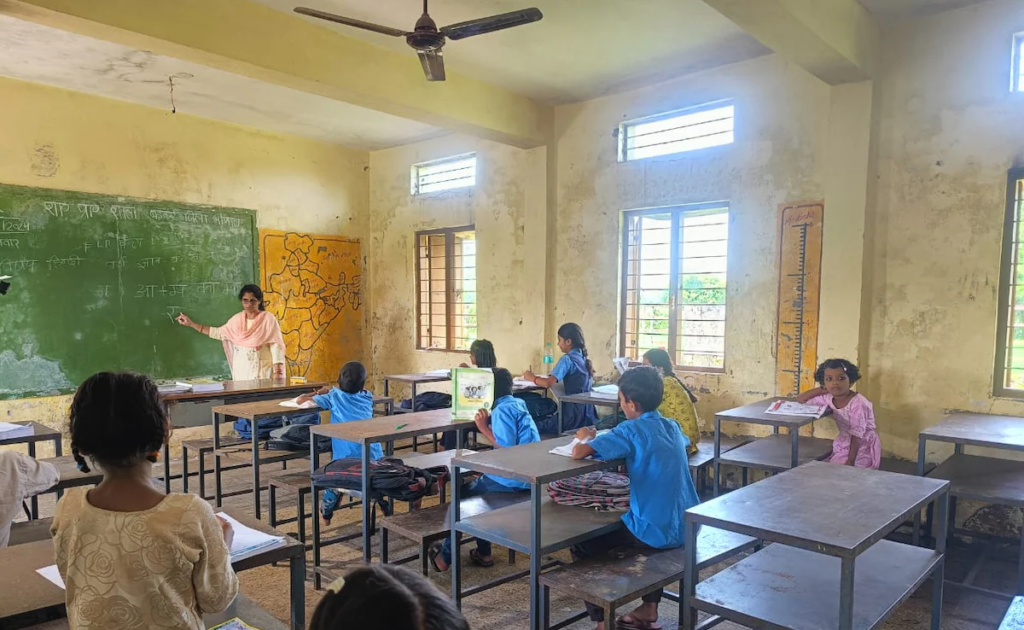In a major step toward strengthening academic quality and administrative oversight, the Delhi Education Department has launched a new system of thrice-weekly inspections across government schools. The initiative aims to tighten monitoring on teaching practices, infrastructure standards, student learning outcomes and overall school functioning.
The move reflects the government’s renewed focus on ensuring that public schools meet consistent benchmarks of quality, safety and efficiency.

A Structured Monitoring Plan for Consistent Oversight through Inspections
According to the newly issued directions, district deputy education officers and deputy directors will conduct mandatory school visits every Monday, Wednesday and Friday, beginning early in the morning.
The plan follows a clear weekly cycle:
- Monday & Wednesday: Officers will visit different schools within their designated zone.
- Friday: Remaining schools, including those missed earlier in the week, will be covered.
After each visit, officers must submit a detailed inspection report to the district commissioner, ensuring that findings are formally tracked and evaluated.
This structured routine aims to reverse the earlier pattern of irregular checks and bring transparency into how daily teaching and administrative practices unfold inside government classrooms.
What the Inspections Will Cover During Inspections
The education department has outlined a comprehensive checklist that officers must review during each visit. These parameters include:
1. Basic Facilities and Infrastructure
Schools will be assessed for the maintenance and functionality of essential facilities such as:
- Classrooms
- Drinking water systems
- Libraries
- Laboratories
- Sports infrastructure
- Playground conditions
Any urgent or unsafe situations are expected to be flagged immediately.
2. Reduction of School Bag Burden
As part of the broader campaign to reduce academic pressure on students, officers will also monitor efforts taken by schools to lighten school bags and ensure compliance with state guidelines.
3. Implementation of Key Initiatives
The inspections will verify the progress of major educational initiatives, including:
- Neem Project
- NIPUN Schools Programme
- National education programmes
- Science of Learning Framework
This component ensures that government-backed reforms do not remain on paper but translate into real changes inside classrooms.
(Note: MCD-run schools are not part of this monitoring cycle.)
Quality of Teaching & Learning Under the Cloud of Evaluation
The Education Department has made classroom teaching quality a central focus of the inspections. Officers are required to spend a minimum of 15 minutes inside classrooms to observe:
- Teaching methodologies
- Learning engagement
- Teacher preparedness
- Student attentiveness
- Use of teaching aids and materials
This extended classroom presence is designed to give a more realistic snapshot of the actual teaching environment—not just a quick, superficial check.
Attendance, Health & Hygiene: A Deeper Look at Student Welfare
Beyond academics, the inspections are also geared toward assessing student wellbeing. Officers will review:
- Teachers’ bio-attendance
- Student attendance patterns
- Hygiene and sanitation facilities
- First-aid availability
- Health and cleanliness of school premises
By expanding the scope of checks, the department hopes to create a safer, cleaner and more supportive learning environment for students.
Accountability Through Detailed Documentation
All observations—positive or negative—must be thoroughly documented. Officers are instructed to record:
- Strengths
- Gaps
- Areas requiring immediate attention
- Any major compliance failures
These comprehensive reports must reach the Director of Education within two days of each visit.
This tight deadline ensures that deficiencies are addressed quickly and that repeated lapses are not ignored.
Swift Review and Timely Corrective Action
The Education Department has emphasised a zero-delay policy when it comes to reviewing inspection findings. Once the reports reach headquarters, the department will:
- Analyse the findings
- Identify actionable concerns
- Issue directions or warnings
- Initiate corrective steps or follow-ups
The aim is to create a feedback loop where issues are not only spotted but resolved promptly—ensuring sustained improvement rather than temporary fixes.
A Step Toward Transparency and Improvement
The thrice-weekly inspection system is one of the most aggressive monitoring reforms introduced in Delhi’s school ecosystem in recent years. By mandating frequent visits, longer classroom observation and detailed reporting, the government hopes to:
- Raise the quality of teaching
- Improve school infrastructure
- Strengthen accountability
- Reduce administrative gaps
- Ensure student wellbeing and safety
If implemented effectively, the initiative could become a model for other states aiming to boost the performance of government schools through consistent, real-time oversight.
Also Read: https://thenewstudent.com/wb-slst-2025-interview-list-released/
https://timesofindia.indiatimes.com/city/vijayawada/one-caste-one-religion-one-language-one-god-aishwarya-rais-speech-at-sri-sathya-sai-baba-centenary-alongside-pm-modi/articleshow/125431142.cms